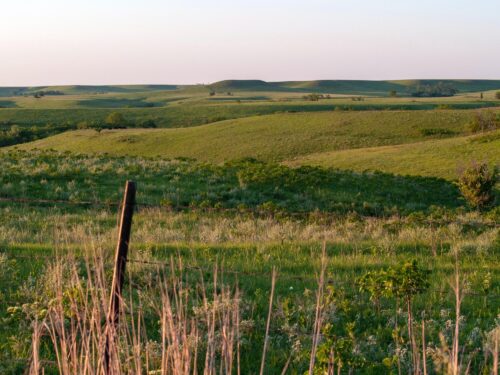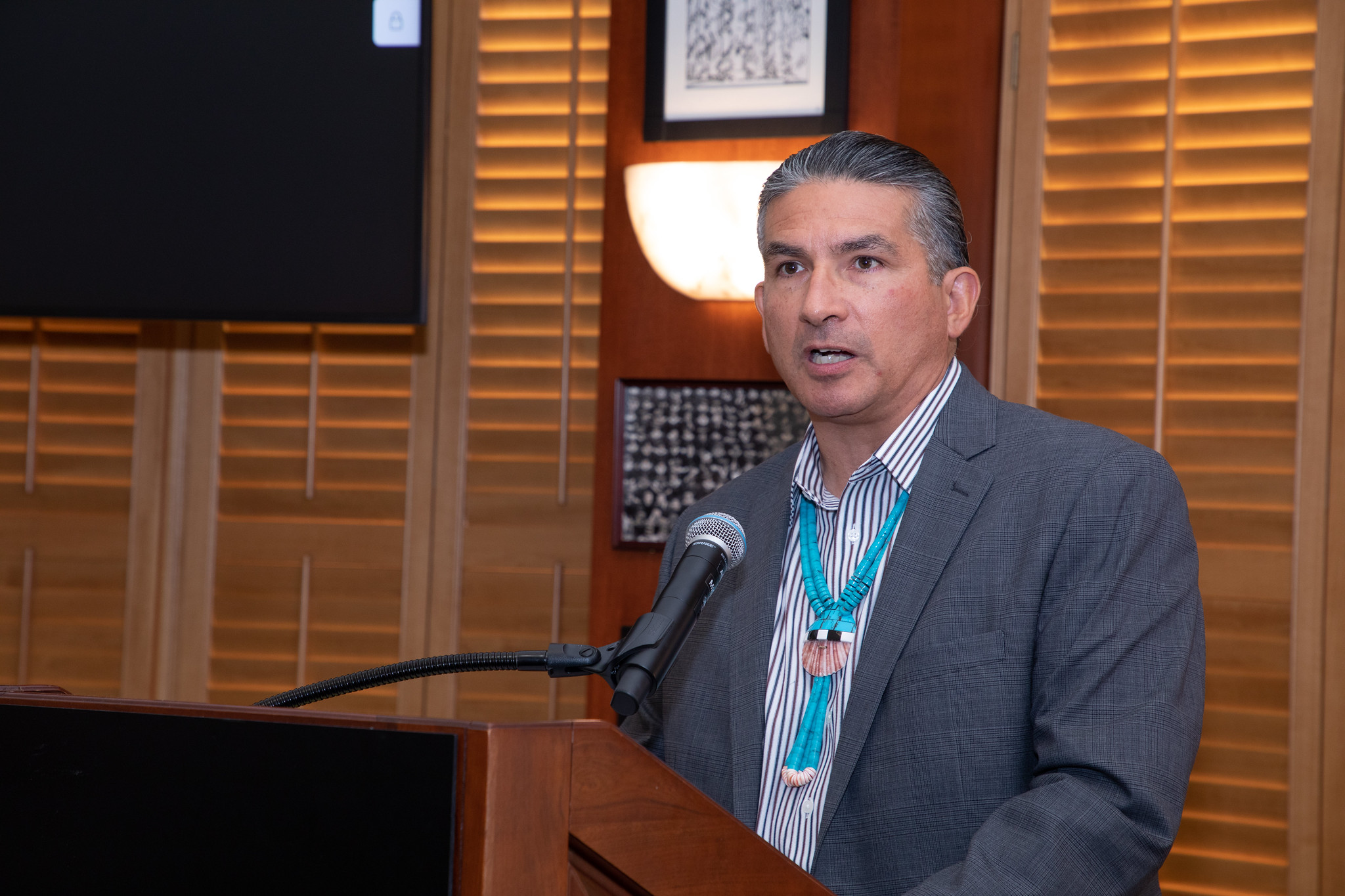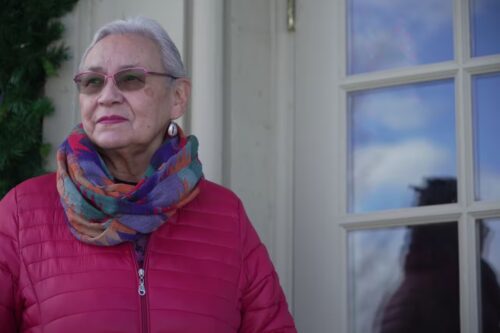“We need to recognize that landback is crucial to the health of our mother earth and potentially our survival as humans on this planet,” Alvin Warren MC/MPA 2013 said last week during a talk at Harvard Kennedy School examining the landback movement, a growing effort to return land to the control of Native peoples.
Warren, the former lieutenant governor of Santa Clara Pueblo, a federally recognized Native nation in New Mexico, delivered the keynote address at the 2022 Truth and Transformation Conference organized by the Ash Center’s Institutional Antiracism and Accountability (IARA) Project. This year’s conference, whose theme was “Looking Back, Paying It Forward: Truth and Transformation through Historical Accountability,” brought scholars, advocates, organizers, and public leaders together to examine different aspects of reparative practices, truth commissions, and institutional reckoning with structural oppression.
Having served as Director of the Trust for Public Lands National Tribal Lands Program, Warren has long been a leader in efforts to restore traditional tribal lands to Native control. The movement has been gaining traction, particularly as the Biden administration has emphasized the importance of shared stewardship of federal lands—including efforts to support tribal co-management.
“Native cultures are profoundly interwoven with the natural environment, the plants, the animals, natural features,” said Warren. “The place names and stories that we have only begin to describe our way, the ways that our communities have influenced and been influenced by these places and place-based things.”
While Warren applauded efforts to strengthen and formalize the role of tribal governments in co-managing federal and state public lands, “Landback cannot be fully realized without addressing who actually holds title to land,” he noted. “Because as we’ve come to learn in Santa Clara Pueblo, for us to be able to have a reciprocal and healthy relationship with our lands under this current land tenure system and to truly be able to protect it, we have to have title.”
For Warren and other advocates around the country, the effort to return lands back to Indigenous hands is central to efforts to fight climate change. “We need to recognize that landback is also crucial to the health of our mother earth and potentially our survival as of humans on this planet.” Noting that Indigenous communities around the world protect the vast majority of the planet’s biodiversity, Warren cited several studies that concluded securing land rights for Indigenous communities could generate billions of dollars in economic returns and carbon-emissions reduction benefits. “Restoring land to Indigenous people must be a central part of our solution to the climate crisis.”
Landback is no less important to addressing the economic challenges that many Native communities, bereft of traditional lands and sources of income, continue to face, argued Warren. “We can’t escape the fact that this massive land theft was a key factor in the vast economic inequities in the United States.” Putting this into stark relief, Warren noted that for every dollar of wealth that the average white American household has, the average Native American household has eight cents.
Referencing a recent study published by the Harvard Project on American Indian Economic Development that finds six federal agencies currently manage approximately one third of the lands that were within former reservation boundaries, Warren explained that the United States is “in an unprecedented moment with this Congress and administration to do something truly meaningful. We have Secretary Deb Haaland, the first native cabinet secretary at the federal level in US history.”
Pointing to legislation pending in Congress that would give Native tribes the first right of refusal on sales of public land and provide for greater tribal involvement in land tenure adjustments, Warren argued that tribes should ramp up their advocacy efforts to strengthen federal funding and other policies to benefit tribal land acquisition efforts. “We have to move from a place of panic, anger, guilt, or willful ignorance to a place of responsibility, solidarity, and equity… Only then will this country begin to get serious about righting its historic wrongs in taking 1.5 billion acres of land from Native people.”
Written by Dan Harsha, Director of Communications and Strategic Initiatives
Watch the Recorded Keynote Address



